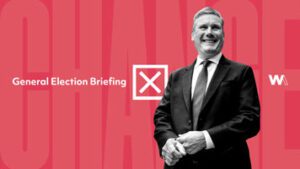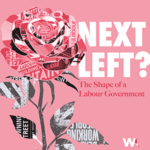Presented by Rachel Reeves as the beginning of the “renewal of Britain”, the Spending Review marks a reset of government priorities – whilst also setting the field for difficult trade-offs in the near future.
The Chancellor has struck a delicate balance by emphasising the unprecedentedly large capital investments allowed by her changed fiscal rules, whilst also emphasising discipline so not as to spook the bond markets. Many of her long-term political allies are pleased that Reeves is borrowing to invest in a sluggish UK economy, and the decisions made in today’s review will set the course for how these investments unfold. But with tight day-to-day departmental budgets penned in until the next election, the government’s fortunes will depend on whether the promised growth arrives – and how quickly the public feels its benefits.
A government ready to spend, but cautiously
The headline figures make clear that Reeves is determined to put her stamp on the economy and public services, announcing £120bn in new capital spending (including £39bn for social housing) and £29bn for NHS day-to-day spending over the coming years. Whilst these sums are large, the Chancellor’s mission in the spending review has been to target it effectively – hence why much of the spending is frontloaded to drive regional regeneration and tangible improvement at pace.
Yet, Reeves emphasises, this is not a splurge. Day-to-day spending remains constrained, and some departments – such as the Ministry of Justice, the Home Office and DEFRA – are being asked to deliver more with less. While the government has been careful to avoid the word “austerity”, think tanks like the Institute for Fiscal Studies are already warning of its creeping return.
Reeves has been clear that she wants this to be remembered as the most ambitious spending review in a generation. But that ambition rests on fragile fiscal ground, the reality of which the Chancellor is all too aware. With just £9.9bn headroom left in her Spring Statement in March and subsequent giveaways like the winter fuel payment U-turn already eating into that, the Autumn Budget is shaping up to be a moment of reckoning. The unspoken truth is that tax rises are likely, and soon.
The politics of place and the spectre of Reform
This Spending Review wasn’t just a fiscal statement – it was a political one too. In tone, scope and substance, it represents a direct challenge to the economic narrative of the previous Conservative government. Reeves herself highlighted contrasts at the dispatch box, accusing her predecessors in the Treasury of presiding over instability which fatally undermined investment in the UK economy, leading to a “lost decade” for living standards.
The regional emphasis of many of her announcements was no accident either. From transport upgrades in Manchester and Birmingham to housing investment in the Midlands, the message was clear: Labour is serious about “levelling up” the rest of the country but on its own terms.
The Chancellor’s political calculus is directly shaped by the growing threat from Reform UK. By concentrating spending in working-class areas most vulnerable to populist insurgency, Reeves hopes to consolidate Labour’s coalition and shore up support following a disastrous set of local elections in May. But success will depend on whether that investment translates into visible improvements to services and quality of life for voters in key seats across the country, and soon.
Hard choices on the horizon
For all its rhetoric of renewal, this was a Spending Review that left big questions unanswered. The Chancellor’s commitment to fiscal responsibility means that her room for further spending is severely limited. As the Parliament goes on and the next election looms, the tensions between Reeves’ ‘ironclad’ rules and the imperative to spend more money on voter priorities will undoubtedly loom large.
Critics of the Chancellor will say that she has boxed herself in too much with unnecessary fiscal rigidity and now cannot afford to achieve the missions on which her party was elected – and that she deserves to take the blame for the political price that Labour will pay. Her supporters, including – for now – the Prime Minister, would point to the impossible fiscal inheritance she received in July and the solid steps she’s taken to fix structural problems with the British economy, particularly on investment. Either way, Reeves has set out her stall: growth through investment, delivery through discipline.
The next test comes in the Autumn Budget, when the government will have to explain not just where the money is going but where it’s coming from.
Health emerges as the clear winner
The Department of Health and Social Care and NHS England emerged as clear winners in today’s Spending Review. This uplift signals the importance the Government continues to place on the NHS, with wins in healthcare seen as a key facilitator to electoral success.
However, the story is far more sobering when it comes to capital budgets and long-term investment in the NHS estate, which we were told was “crumbling” only a few months ago by Wes Streeting. Capital budgets are flat in real terms, with a 0% average annual real growth rate over the next three years leaving serious questions over the viability of the just recently rebranded New Hospitals Programme and wider ambitions to modernise the NHS estate. The decision is particularly stark considering the Darzi Review’s criticism of chronic underinvestment in capital over the past decade.
One of the biggest questions is whether the funding will be enough to support Wes Streeting’s longer term ambitions for the NHS, particularly its yet to be fully published 10-year health plan. While the Spending Review has committed a theoretically ring-fenced budget of £10bn for digital transformation, this is just one of three priority areas of Wes Streeting’s three-phrase health service transformation mantra. The weight of the impending 10-year health plan will inevitably depend on just how much pay packages, inflation and increasing demand chip away at the spending settlement.
The fact that this significant investment is received with tempered celebration is perhaps an indicator of the scale of the challenges faced by the NHS.

